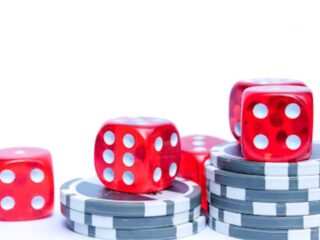
The Myth of Poker Talent by Alex Fitzgerald is a compelling IDN Poker strategy book that challenges the conventional belief that poker success relies primarily on natural talent. Instead, Fitzgerald argues that winning at poker is about understanding the game’s mechanics, applying strategy, and continuously refining your skills. Released in 2016, this book quickly became a must-read for poker enthusiasts, particularly those looking to improve their online game. Fitzgerald draws from his extensive experience as a professional poker player and coach, providing readers with practical advice, insightful strategies, and a fresh perspective on the game.
Overview of The Myth of Poker Talent
The central theme of The Myth of Poker Talent is that anyone can learn to play winning poker if they are willing to put in the time and effort. Fitzgerald dispels the idea that success in poker is solely dependent on an innate skill or a natural gift. Instead, he emphasizes that with the right tools, knowledge, and practice, players of all levels can develop their abilities and compete at a high level.
The book is structured to take readers through a series of concepts, starting with fundamental strategies and building up to more complex tactics. Fitzgerald’s approach is methodical and analytical, making it an ideal resource for players who want to understand poker from a strategic standpoint rather than relying on luck or instinct. Each chapter is filled with hand examples, exercises, and insights that help reinforce the lessons being taught, making the material accessible and engaging.
Key Concepts Discussed in The Myth of Poker Talent
- The Importance of Strategy Over Talent
Fitzgerald begins by addressing the common misconception that only a select few are capable of excelling at poker. He argues that poker is a skill-based game, much like chess, where the outcome is determined by a player’s ability to make informed, strategic decisions. By focusing on math, psychology, and theory, players can learn to make better decisions and improve their win rates over time. This section sets the tone for the rest of the book, encouraging readers to focus on developing their strategic understanding of the game. - Mathematics of Poker
One of the strongest aspects of The Myth of Poker Talent is its focus on the mathematics behind poker. Fitzgerald breaks down complex concepts like pot odds, equity, and expected value (EV) into simple, easy-to-understand terms. He explains how to calculate the profitability of a hand, whether to call or fold based on the odds, and how to make the most out of each betting decision. The emphasis on math helps readers build a solid foundation, which is essential for making consistent, winning plays.
- Aggressive Play and Bet Sizing
Fitzgerald advocates for an aggressive style of play, which he believes is crucial for dominating opponents and building a chip lead. He explains how to use aggression effectively, from making continuation bets (c-bets) to applying pressure with three-bets and four-bets. The book also covers the nuances of bet sizing, helping players understand when to bet big to maximize value and when to make smaller bets to control the pot. These lessons are particularly useful for online players who often face aggressive opponents and need to learn how to counter or exploit them. - Range Analysis and Hand Reading
One of the most valuable skills in poker is the ability to accurately assess your opponent’s range of hands. Fitzgerald dives deep into range analysis, teaching readers how to narrow down what their opponents might be holding based on their actions. By understanding ranges, players can make more informed decisions, especially in tricky situations where it’s unclear whether to call, raise, or fold. The book offers practical exercises and hand examples that illustrate how to build and analyze ranges effectively. - Exploiting Weaknesses and Adapting to Opponents
Poker is not just about playing your cards; it’s about playing your opponents. Fitzgerald dedicates sections of the book to understanding player tendencies and adjusting your strategy to exploit them. Whether facing a tight, conservative player or an overly aggressive opponent, the book provides tips on how to adapt your game and take advantage of your opponents’ weaknesses. Fitzgerald emphasizes the importance of being flexible and observant, as no two opponents play the same way, and the ability to adjust is key to long-term success. - Mental Game and Tilt Management
Success in poker is not only about technical skills but also about mental resilience. Fitzgerald addresses the psychological aspects of poker, including how to manage tilt, stay focused, and maintain discipline during long sessions. He shares practical advice on how to approach the game with a healthy mindset, deal with bad beats, and avoid letting emotions interfere with strategic decision-making. This section is especially beneficial for players who struggle to maintain composure when things don’t go their way.
Strengths of the Book
One of the greatest strengths of The Myth of Poker Talent is Fitzgerald’s clear, straightforward writing style. The book is packed with valuable insights, yet it’s easy to read and understand, even for those who are new to poker. Fitzgerald doesn’t overwhelm readers with unnecessary jargon or overly complex theories; instead, he presents strategies in a way that is relatable and actionable.
Another standout feature is the book’s focus on practical application. The exercises and hand examples throughout the book allow readers to actively engage with the material, test their understanding, and apply what they’ve learned to their own game. This hands-on approach makes the book a useful tool for players who are serious about improving.
Weaknesses of the Book
While The Myth of Poker Talent is an excellent resource for beginners and intermediate players, more advanced players may find some of the content to be too basic. Those who are already familiar with the fundamentals of poker strategy might not gain as much from the book’s earlier chapters, which focus heavily on basic concepts like pot odds and hand rankings. Additionally, while the book is well-suited for online players, live poker players might find less value in certain sections, as the emphasis is on fast-paced, online play.
Conclusion
In conclusion, The Myth of Poker Talent by Alex Fitzgerald is a must-read for anyone looking to improve their poker game through strategic thinking and skill development. By dispelling the myth that success in poker is purely based on talent, Fitzgerald encourages players to focus on learning and mastering the game’s fundamentals. With its clear explanations, practical exercises, and emphasis on strategy over luck, the book provides a comprehensive guide to winning at poker, especially in the online arena.
Whether you’re a beginner looking to build a solid foundation or an experienced player seeking to refine your skills, The Myth of Poker Talent offers insights that can help you achieve long-term success at the poker table.




